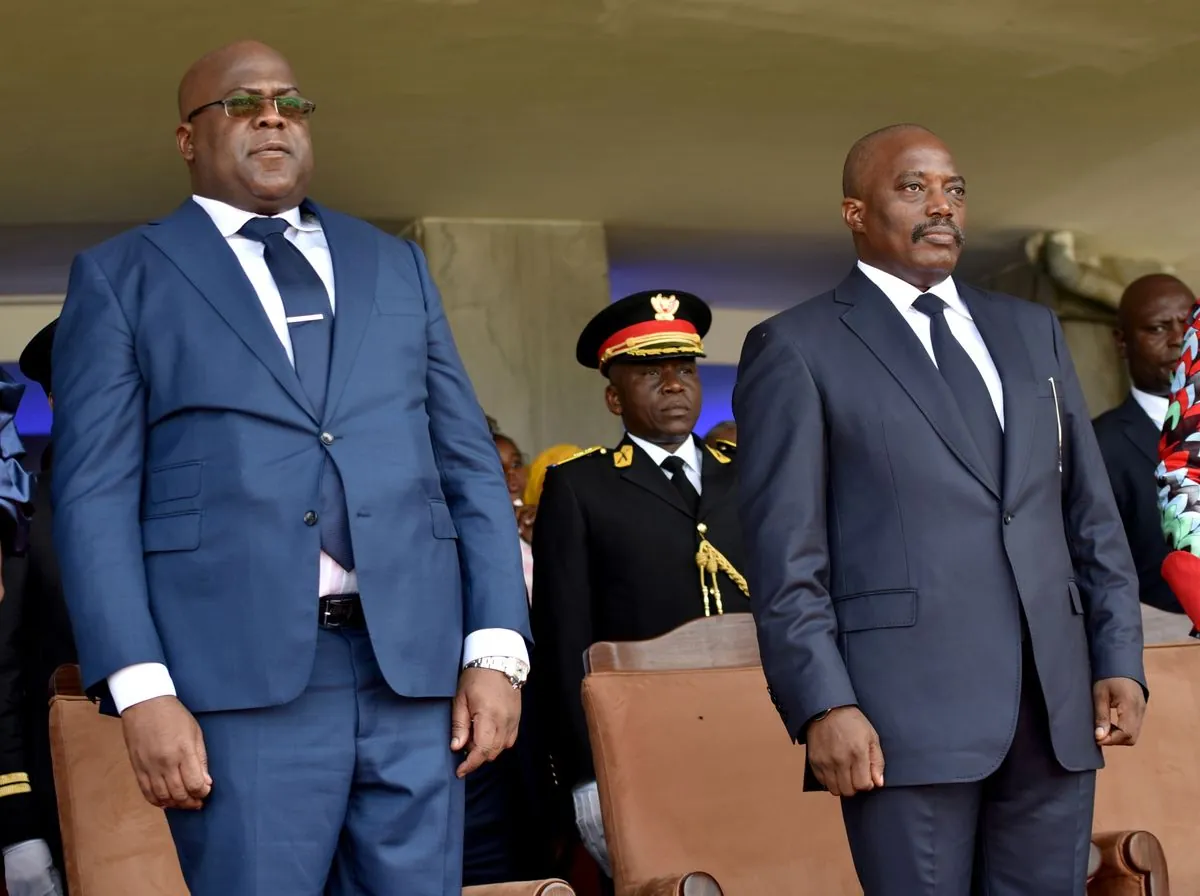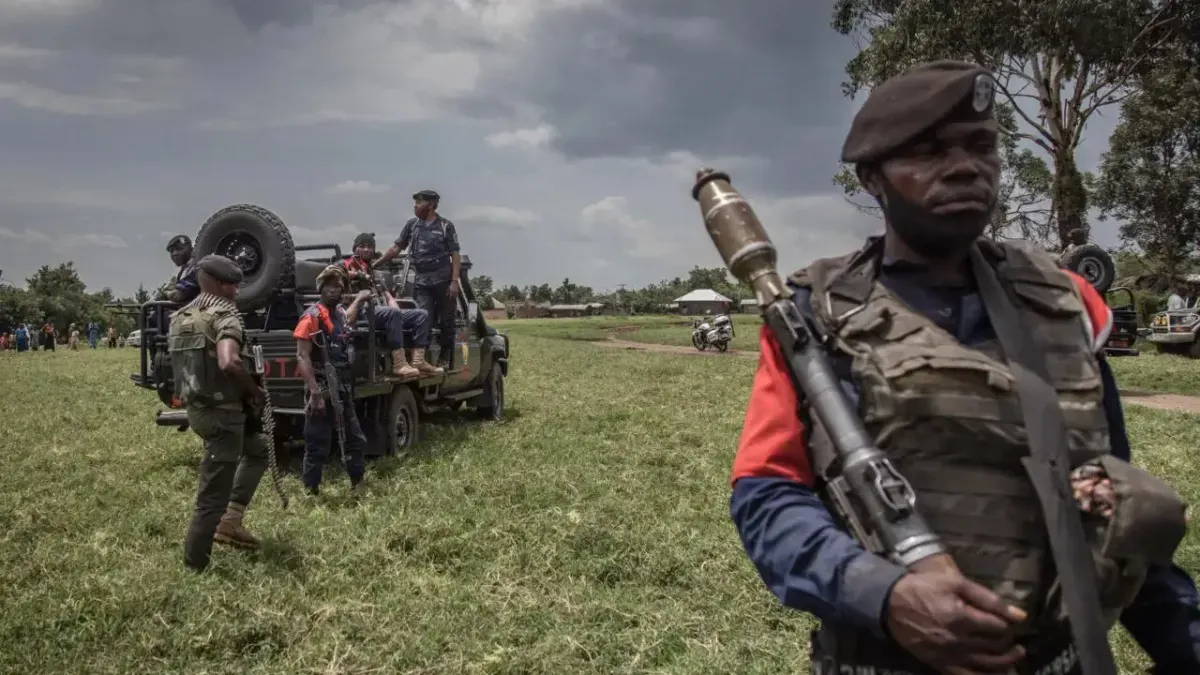Congo's Leader Accuses Predecessor of Backing Rebel Alliance
President Tshisekedi claims ex-leader Kabila supports sanctioned rebel coalition. U.S. imposes sanctions on AFC, while Congo-Rwanda tensions ease with recent ceasefire amid ongoing violence in eastern Congo.

In a recent radio interview, Felix Tshisekedi, the President of the Democratic Republic of Congo (DRC), alleged that his predecessor, Joseph Kabila, is supporting a coalition of rebel groups known as the Alliance Fleuve Congo (AFC). This accusation comes amidst ongoing conflict in eastern Congo, a region rich in natural resources and plagued by violence for decades.
Tshisekedi claimed that Kabila boycotted the election and is preparing an insurrection through the AFC, a political-military movement launched in December 2023. However, no evidence was provided to support this assertion. The DRC, the second-largest country in Africa by area, has experienced continuous conflict since the 1990s, resulting in millions of deaths and displacements.
Last month, the United States imposed sanctions on the AFC, accusing the alliance of attempting to overthrow Congo's government and exacerbating conflict in the eastern region. The M23 rebel group, a prominent member of the AFC formed in 2012, was already under U.S. sanctions. This conflict has often been referred to as Africa's World War due to its complexity and the involvement of multiple countries.
Tshisekedi, along with U.S. and U.N. experts, has accused neighboring Rwanda of providing military support to M23. While Rwanda denies these claims, it acknowledged in February 2024 that it had deployed troops and missile systems in eastern Congo for security purposes. The United Nations has maintained a peacekeeping mission in the DRC since 1999 to address the ongoing instability.

In a positive development, Congo and Rwanda agreed to a cease-fire that began on August 4, 2024, following talks mediated by Angola. This agreement aims to ease tensions between the two countries, which have been accused of supporting rebel groups in the region for economic and security reasons.
The eastern provinces of North and South Kivu continue to struggle with armed violence, as over 120 groups fight for power, land, and valuable mineral resources. The DRC is known for its vast deposits of cobalt, copper, and diamonds, which have often fueled conflicts in the region.
The humanitarian situation remains dire, particularly for displaced populations. Médecins Sans Frontières (MSF), which has been operating in the DRC since 1981, released a report highlighting the alarming rates of sexual violence in displaced people camps. Between November 2023 and April 2024, more than one in ten women in these camps reported being raped.
"In three of the camps where we work, we treated more than 1,700 survivors of sexual violence in April. In 70% of cases, these acts of violence are committed by weapons carriers."
As the DRC continues to grapple with these challenges, the international community remains involved. The International Criminal Court has been prosecuting war crimes committed in the country, while efforts to promote stability and protect the world's second-largest rainforest, located within the DRC's borders, continue.


































